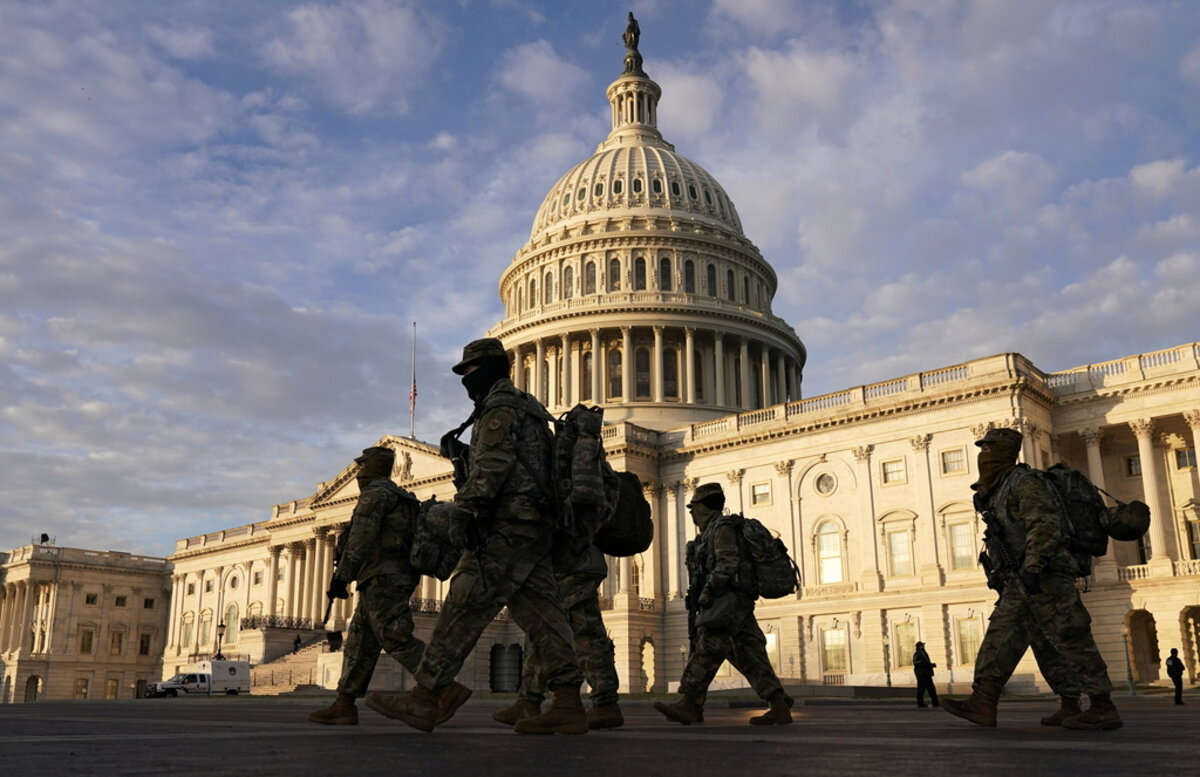The Capitol attack raises questions about police corruption. Our reporter looks at how to restore trust in law enforcement when insurgents and white supremacists infiltrate the institutions charged with public safety.
Monitor Daily Podcast
- Follow us:
- Apple Podcasts
- Spotify
- RSS Feed
- Download
 David Clark Scott
David Clark Scott
Insurrection. Impeachment. And a presidential inauguration protected by up to 20,000 National Guard troops. These are serious, challenging times in America. But this story brought a smile.
The Delaware Humane Association is holding an “indoguration party.” This Sunday, they’re planning an online event (and fundraiser) to honor Major, the first shelter dog to occupy the White House. The Bidens adopted the German shepherd as a puppy in 2018 to keep their other dog, Champ, company.
Presidential pooches have long been important political symbols and companions. President John F. Kennedy, for example, used to swim laps in the pool with Charlie. The Welsh terrier also reportedly had a calming influence on JFK during the 1962 Cuban missile crisis.
While Major is the first shelter dog, he’s not the first rescue canine to reside at 1600 Pennsylvania Ave. President Lyndon B. Johnson adored Yuki, a small mixed terrier who was found abandoned at a gas station in the president’s hometown. LBJ’s grandson later wrote that the “white mutt” and president “shared a very significant bond that personified the American spirit: Only in America could a poor boy from Johnson City end up in the White House,” according to the Presidential Pet Museum.
In my experience, the most endearing canine qualities are loyalty and unconditional love. And everyone, especially presidents, could use a little more of that in their life.











